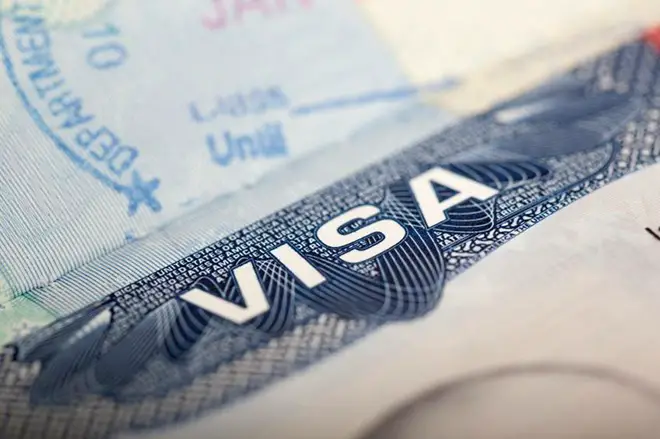MBA in the US as an International Student
Doing an MBA in the US from one of the best business schools in the country has always been my lifelong dream. This has been the most expensive endeavor I’ve ever undertaken. Before you embark on this journey, be sure to learn as much about the pros and cons of doing an MBA because you’ll be spending two years of your life as well as a ton of money. Let’s discuss some of the myths about an doing an MBA in the US. I’d like to share the lessons learnt during my journey so that it might help anyone else with similar dreams.
FAQs on doing MBA in the US as an International Student
Can an MBA help me switch careers?
Before I was bitten by the MBA bug, I was in software development. I wanted to get an MBA because many of the successful people I knew in the corporate world had MBAs. I thought the only way to advance my career was to earn an MBA. However, this is not entirely true. If you are in software development, and want to switch to product management, which I did, you don’t exactly need an MBA to make that switch. There are far less expensive ways to make the switch.
What is the right age to do an MBA?
There is no right age to do an MBA, but average age of the MBA student in the US is 27 years. When you’re younger, its easier to hop on a plane and move to the other side of the world. If you have a family, and a spouse who has a career back home, those factors must be considered as well.
Business schools prefer younger candidates because they have a wider variety of choices while making career switches and therefore, they would have an easier time finding jobs. When you’re older and have more experience and are trying to switch industries, it’s much harder.
Can an MBA really teach me much?
When I applied for MBA programs, many business schools tried to deter me and steered me towards the Executive MBA programs. However, my heart was set on the two year daytime MBA program as I wanted to take two years off and learn as much as I could.
In my experience, an MBA teaches the breadth of courses, but doesn’t go into the depth of the material. Every course at my school was taught for 6 weeks, so the possibility of covering courses in depth was pretty much non existent.
What are the careers that require an MBA?
There are specific careers that require an MBA, for example, consulting and investment banking. Candidates in the MBA program who have been working in other industries typically use the MBA switch to these industries.
Consulting and investment banking firms visit campus during the fall and there are well defined paths to getting recruited by these firms. You visit them during fall, attend their information sessions while they visit school, network with representatives from the firm and make sure you a chance to get invited for interview. If you manage to impress them during the interview, you land an internship, which will convert to an offer if the firm is happy with your performance during the internship.
Does ranking matter while choosing an MBA Program?

One of the reasons I chose my school was that it was a top ranked university. In fact, I was accepted to and had received a higher scholarship from another lower ranked but still well known university. The scholarship was almost 70% of the tuition fee, but I chose to attend the top ranked university because I was blinded by ranking and status.
Granted, attending a top ranked program, offers status and access to a successful network, but attending school at a ranking a couple of spots lower doesn’t make much of a difference. The alumni at such schools will be just as helpful if you reach out to them for networking and success at careers doesn’t depend much on the ranking of schools.
How can I fund my MBA?
Only a handful of schools offer no cosigner loans for their programs. The cost for an MBA can be close to $200,000 if you enroll in a two year program, are an international student and don’t receive any scholarships from the school. If you have someone sponsoring your MBA, you don’t have to worry. However, if you’re paying out of your pocket like I did, you definitely need to stay in the US to make enough money to pay back your loans.
Is it easy to find a job after I complete my MBA?
After you’ve completed an MBA in the US, an international student, you need companies to sponsor a H1B for you so that you can stay in the US and work. If you have student loans, going back to your home country and making that money may be difficult. However, it is equally, if not more difficult, to find an employer who will sponsor your H1B, because of the additional costs associated with it.
What are the visa hurdles if I choose to do an MBA in the US?

Many of the schools offer a one year OPT (Optional Practical Training) period after an MBA in the US, but this gives candidates just one chance to enter the H1B lottery system, provided they find a job in time. Nowadays, many schools are converting their MBA programs to a STEM degree by combining analytics in the program, which would give candidates a total of 36 months of OPT, and would give candidates 3 chances to enter the H1B lottery. You still have to keep in mind that it is a lottery. You may get picked or you might not.
Final thoughts
In short, doing an MBA in the US maybe the right decision for some, but there are many aspects to consider before you make such a huge investment in terms of money, time and effort. Getting admitted to a top program requires you to have a high GMAT score, stellar GPAs, winning essays, great recommendations, an upward career trajectory and an impressive interview. This is not easy. So before you embark on this journey, do consider all these aspects and determine if its really worth your effort, time and money. Good luck!







